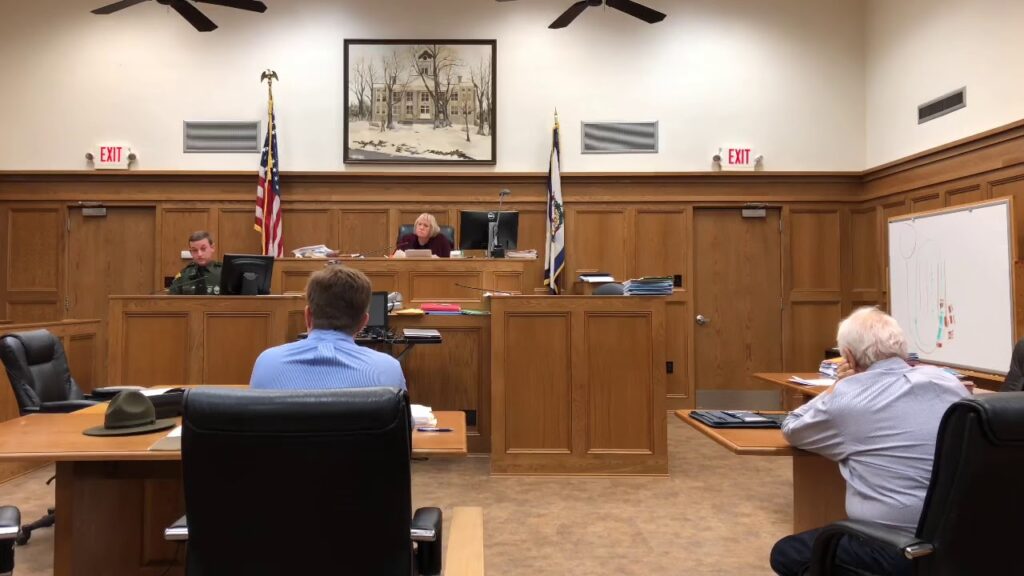Understanding New Mexico’s Habitual Offender Enhancement: How Prior Felonies Dramatically Increase Your Sentence
If you’re facing felony charges in New Mexico and you have prior felony convictions on your record, understanding the habitual offender enhancement statute could be the difference between a manageable sentence and spending years—even decades—behind bars. New Mexico’s habitual offender law, Section 31-18-17, is critical because it puts mandatory time on the line and therefore gives prosecutors enormous leverage in plea negotiations.
How the Habitual Offender Enhancement Works
Under New Mexico law, if you’re convicted of a felony now and you have qualifying prior felony convictions, your sentence will be enhanced. The amount of enhancement is based on how many priors you have:
- One Prior Felony Conviction: one year.
- Two Prior Felony Convictions: four years.
- Three or More Prior Felony Convictions: eight years.
These enhancements are added to the basic sentence for your current offense. For example, if you’re convicted of a fourth-degree felony that carries a basic sentence of up to 18 months, and you have two prior qualifying felonies, the court must add four years to your sentence—transforming what could have been an 18-month sentence into a sentence of up to 66 months (5.5 years) AND that four year enhancement cannot be suspended: you must be sentenced to 4 years at least and up to 5.5 years max.
What Makes a Prior Conviction “Qualifying”?
Not every prior felony conviction counts toward habitual offender enhancement. To qualify, the prior conviction must meet specific requirements:
- Separate Transaction or Occurrence: Each prior felony must have been “part of a separate transaction or occurrence” from the others and from your current offense. This means convictions arising from a single incident or unified course of events count as only one prior conviction.
- Timing Requirement: The prior conviction must have occurred when less than ten years have passed between when you completed serving your sentence (including probation and or parole) and the date of your current felony conviction
- No Overlap: there has to be distance between the convictions for there to be multiple ones. You must have incident and conviction and then another incident for there to be an enhancement. Note you can’t have incident incident then conviction and conviction for there to be a four year enhancement on a new felony; that would just be a one year enhancement. For there to be a four year enhancement, you must have incident and conviction and another incident and conviction to enhance a new felony by four years.
The Mandatory Nature of These Enhancements
Here’s what makes habitual offender enhancements so powerful for prosecutors: they are mandatory in most cases.
By law, the enhancement “shall not be suspended or deferred”. This means once the court finds you qualify as a habitual offender with two or more priors, the judge has no discretion—the additional time must be imposed and cannot be suspended or placed on probation. The only exception is if the new felony and the one prior are both nonviolent, then the judge may suspend the enhancement if there are “substantial and compelling reasons” stated on the record for departing from the mandatory sentence.
How Consecutive Sentences Multiply the Impact
The habitual offender enhancement becomes even more severe when you’re convicted of multiple current offenses in a new case. Here’s how:
If you’re convicted of three separate felonies in the same case and you have three prior qualifying felonies, each current conviction can be enhanced by eight years. If the judge orders these sentences to run consecutively (one after another rather than concurrently), you could face an additional 24 years just from the enhancements alone—before even counting the basic sentences for the three new offenses. That is a lot of time.
The Prosecution’s Leverage in Plea Negotiations
Understanding the mandatory nature of these enhancements is critical to understanding plea negotiations in New Mexico. Because habitual offender enhancements:
- Are mandatory
- Can be stacked consecutively across multiple counts
- Are imposed in addition to the basic sentence
…prosecutors have extraordinary leverage when negotiating with defendants who have prior felony records.
Here’s a common scenario: You’re charged with three fourth-degree felonies. Each carries a basic sentence of up to 18 months. You have three prior qualifying felonies. If convicted on all counts with habitual enhancements running consecutively, you face:
- Basic sentences: 3 × 18 months = 4.5 years
- Habitual enhancements: 3 × 8 years = 24 years
- Total potential exposure: 28.5 years
Now imagine the prosecutor offers a plea deal in this case: you can plead to one count, dismiss the other two, and the state won’t pursue habitual enhancement. Suddenly, your exposure drops from 28.5 years to 18 months. This is the kind of pressure defendants face. You would have to have an extreme amount of confidence to go to trial in the face of that offer.
The prosecution knows that if you reject their offer and go to trial, the enhancements are mandatory upon conviction. There’s no negotiating with the judge after conviction—the law requires the additional time. This reality forces many defendants to accept plea deals they might otherwise reject, even when they have viable defenses to the underlying charges.
When Enhancements Can Be Imposed
The state can seek habitual offender enhancement “at any time following conviction, as long as the sentence enhancement is imposed before the defendant finishes serving the term of incarceration and any parole or probation that may follow that term”
Many defendants are shocked to learn that the state can pursue habitual enhancement even after they’ve successfully served prison time and been released on probation, only to face additional years for a probation violation combined with newly-filed habitual proceedings. Crucially, folks find out when they are on probation that if they violate it is so easy for the state to impose that habitual offender time.
Negotiate Before Conviction: Once you’re convicted, the enhancements are largely automatic. The time to negotiate is before conviction, when you have maximum leverage. Don’t just take a felony deal to get our of jail!
Why You Need Experienced Counsel
Facing felony charges with prior convictions on your record is among the most serious situations in criminal law. The mandatory nature of habitual offender enhancements means that decisions you make early in your case—whether to accept a plea offer, whether to go to trial, whether to challenge the applicability of prior convictions—can determine whether you spend years or decades in prison.
At Max Pines Law, we thoroughly investigate every habitual offender allegation to determine:
- Whether your prior convictions actually qualify under the statute
- Whether the state can meet its burden of proving you’re the same person
- Whether any prior convictions fall outside the ten-year window
- Whether convictions arose from the same transaction and shouldn’t count separately
- What strategic options exist to avoid or minimize enhancements
We also work to negotiate resolutions that avoid triggering mandatory enhancements while protecting your rights at every stage.
The stakes are too high to navigate this alone. If you’re facing felony charges and have prior felony convictions, contact Max Pines Law immediately for a consultation. Understanding your exposure under the habitual offender statute is the first step toward protecting your future.






